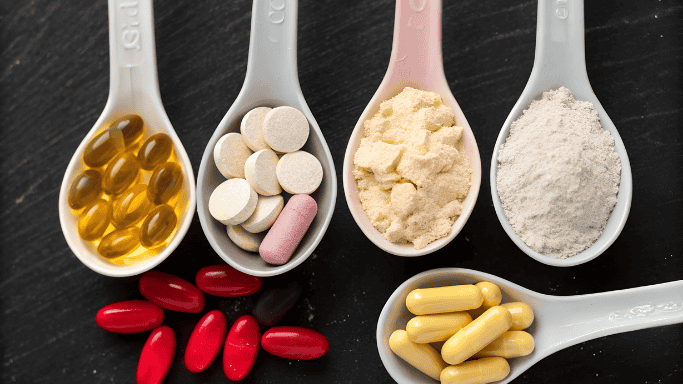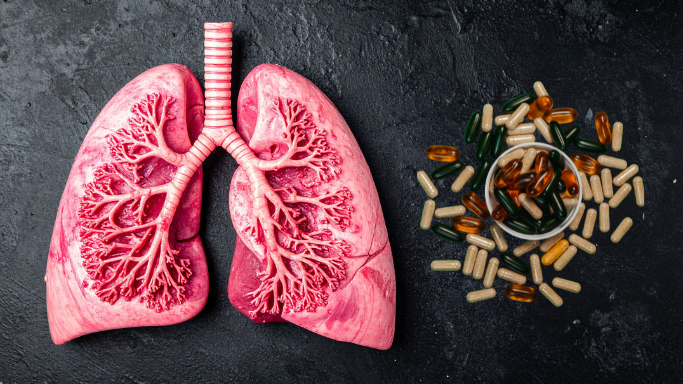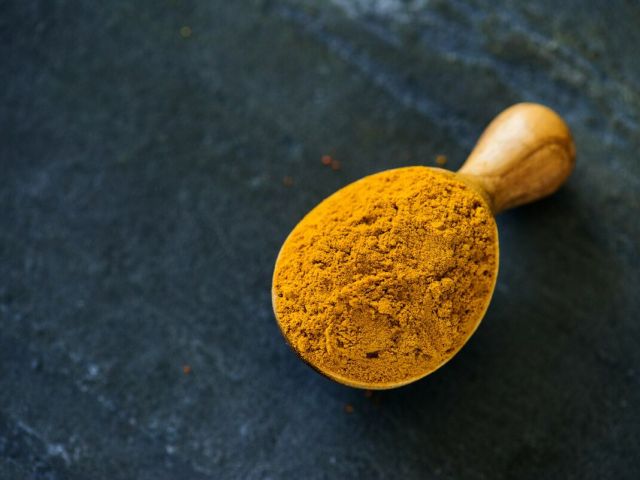
11 Supplements to Support Lungs and Respiratory Health
When your respiratory system faces challenges from pollution, infections, or chronic conditions like COPD and asthma, the right nutritional support can make a real difference. Research reveals that certain vitamins and supplements may help strengthen lung function and reduce inflammation.
This guide examines 11 science-backed supplements that support respiratory health. We’ll explore how each one works and what the clinical evidence tells us about their benefits.
Key Takeaways
- The strongest evidence exists for vitamin D, omega-3 fatty acids, NAC, and curcumin for respiratory support
- Most supplements work by reducing inflammation and oxidative stress in lung tissues
- Benefits include improved lung function, fewer infections, and reduced exacerbations in chronic conditions
- Consult healthcare providers before starting any supplement regimen, especially with existing lung conditions – stacking both supplements provides complete performance and recovery support
Best Supplements for Lung Health and Respiratory Support

Each of these supplements offers unique mechanisms that may help protect and strengthen your lungs through different pathways.
1. Vitamin D
Vitamin D plays an important role in immune function and inflammation control throughout your respiratory system. Research shows this vitamin modulates immune responses in ways that directly benefit lung health1.
People with lung diseases often show low vitamin D levels in their blood, which links to impaired lung function and increased risk of respiratory infections.
COPD Benefits:
- Improves forced expiratory volume (FEV1)
- Reduces acute exacerbations
- Decreases inflammation markers
- Slows lung function decline
A systematic review of 15 studies involving 1,598 patients with chronic conditions found that vitamin D supplementation improved breathing capacity. Meanwhile, a large clinical trial with 442 adults showed benefits for people who had smoked, with improvements reaching 160 mL in those with asthma or COPD2.
If you have low vitamin levels, taking vitamin d supplements may help strengthen your respiratory defenses, especially if you have an existing lung condition.
2. Vitamin C
This powerful antioxidant accumulates in immune cells to support your body’s defense systems. During respiratory infections, vitamin c levels naturally drop while your body’s demand increases.
Clinical trials indicate that oral vitamin C at 2-8 grams daily may reduce both the frequency and duration of respiratory infections. Higher intravenous doses have shown benefits for severe respiratory conditions3.
Respiratory Benefits:
- Protects cells from oxidative damage
- Improves antiviral immune responses
- Reduces inflammation in airways
- Supports stress response during infections
Beyond these effects, vitamin C may also help relax airway smooth muscle and prevent respiratory complications through its antioxidant and antiinflammatory actions. Some studies suggest vitamin c may help reduce the risk of lung cancer by protecting respiratory cells from damage.
Jinfiniti’s Natural Vitamin C + Zinc combines whole food vitamin C from amla extract with bioavailable zinc for improved immune support. This natural formula works more effectively than synthetic alternatives because your body recognizes and uses it better.
For more details about different options, check out our guide on forms of vitamin C in supplements.
3. Curcumin (From Turmeric)
Curcumin, the active compound in turmeric, offers remarkable antiinflammatory properties that benefit respiratory health. Studies reveal it modulates multiple inflammatory pathways while protecting against oxidative stress4.
This compound works by inhibiting NF-κB signaling and other inflammatory cascades. It also helps restore corticosteroid sensitivity, which is often impaired in chronic respiratory diseases.
COPD Research:
- Reduces cigarette smoke-induced inflammation
- Improves small airway reconstruction
- Improves corticosteroid effectiveness
- Decreases inflammatory markers
A randomized trial with 60 asthma patients found that nano-curcumin improved lung function and quality of life compared to placebo. Taking vitamin supplements alongside curcumin can improve respiratory function in patients with chronic lung conditions5.
Jinfiniti’s Extra Strength Turmeric+ provides potent curcumin with black pepper extract to improve absorption by up to 2000%. This formula also includes complementary compounds like boswellia and ginger for complete anti-inflammatory support.
Our turmeric buyer’s guide can help you select the highest quality supplements.
4. Omega-3 Fatty Acids
EPA and DHA omega-3 fatty acids provide powerful anti-inflammatory benefits that directly support lung health. These healthy fats help produce specialized compounds called resolvins that actively resolve inflammation without suppressing immune function.
A large longitudinal study following over 15,000 participants found that higher omega-3 concentrations were associated with slower lung function decline. The benefits were most pronounced for DHA, showing improved lung capacity over time6.
Lung Function Benefits:
- Slows age-related lung function decline
- Reduces inflammatory cytokines
- Improves protein synthesis in respiratory muscles
- Decreases exacerbation risk in COPD
Clinical trials with people with copd show that omega-3 supplementation can improve muscle health and protein balance. This helps address the muscle wasting commonly seen in chronic obstructive pulmonary disease.
Animal studies show that resolvin D1, derived from DHA, reduces lung inflammation while improving the clearance of inflammatory cells7.
5. Probiotics (Lactobacillus Strains)
Your gut microbiome influences lung health through what scientists call the gut-lung axis. Beneficial bacteria produce compounds that circulate throughout your body and affect respiratory immune responses.
A multicenter trial with 112 COPD patients found that Lactobacillus rhamnosus GG delayed the onset of moderate-to-severe exacerbations compared to standard treatment alone8.
Immune Support:
- Modulates respiratory microbiome
- Reduces exacerbation frequency
- Improves natural killer cell activity
- Decreases inflammatory markers
Certain Lactobacillus strains can reduce the duration and severity of upper respiratory tract infections. These effects work by strengthening your body’s natural defense mechanisms, and supplements may reduce the risk of respiratory infection complications.
This approach addresses the underlying immune imbalances that contribute to both respiratory infections and chronic inflammatory conditions.
6. N-acetylcysteine (NAC)
N-acetylcysteine serves a dual purpose as both a mucolytic agent and glutathione precursor. It helps thin mucus while boosting your body’s primary antioxidant defense system.
Multiple analyses confirm NAC’s effectiveness in preventing COPD exacerbations. Higher doses of 1200-1800 mg daily show superior results compared to standard amounts9.
Respiratory Benefits:
- Breaks down thick mucus
- Restores glutathione levels
- Reduces inflammatory cytokines
- Prevents acute exacerbations
NAC works by breaking disulfide bonds in mucus proteins, making secretions easier to clear. This mechanical effect combines with its antioxidant properties to provide complete respiratory support and improve respiratory function.
The supplement maintains an excellent safety profile with decades of clinical use, though most side effects are mild and stomach-related.
7. Resveratrol
Found in red wine and grapes, resveratrol offers anti-inflammatory and antioxidant properties helpful for respiratory health. Studies indicate it suppresses pathogen-induced inflammation through multiple pathways10.
Animal studies consistently show decreased lung inflammation and improved small airway reconstruction following resveratrol treatment in COPD models. The compound works by modulating SIRT1 and other longevity pathways.
Protective Mechanisms:
- Inhibits inflammatory signaling pathways
- Provides antioxidant protection
- Prevents cell death in lung tissues
- Reduces oxidative stress markers
While human trials for respiratory conditions remain limited, resveratrol’s ability to modulate inflammation and oxidative stress shows promise as supportive therapy. Some research suggests it may help reduce the risk of lung cancer through its protective antioxidant properties.
The compound’s favorable safety profile and multiple health benefits make it an interesting option for natural anti-inflammatory approaches to respiratory wellness.
8. Tiger Milk Mushroom
Tiger Milk Mushroom has been traditionally used by Southeast Asian communities for respiratory conditions including cough and asthma. Modern research is now beginning to validate these traditional applications.
Studies with isolated airway tissue show that water-soluble extracts can promote airway relaxation, supporting traditional uses for breathing difficulties11.
Traditional Applications:
- Treatment of chronic cough
- Asthma symptom relief
- Respiratory stamina improvement
- General lung support
The mushroom contains bioactive proteins, polysaccharides, and other compounds with documented anti-inflammatory and antioxidant properties. Research reveals anti-neuroinflammatory activity through cellular protective pathways.
While clinical data remains limited, the combination of traditional use and emerging scientific evidence suggests promising benefits for respiratory health.
9. Myo-Inositol
Myo-inositol offers respiratory benefits through multiple mechanisms that directly support lung function. This naturally occurring compound works as a key component of pulmonary surfactant, the substance that prevents your lungs from collapsing.
Research shows myo-inositol helps mature surfactant phospholipids and reduces surface tension in your airways. The compound also reduces interleukin-6 (IL-6), a major inflammatory protein that drives chronic respiratory disease.12
Respiratory Benefits:
- Improves pulmonary surfactant function
- Reduces inflammatory markers (IL-6)
- Improves mucociliary clearance
- Reduces mucus thickness and improves hydration
- Supports lung cancer prevention
A study with 19 bronchiectasis patients found that myo-inositol treatment improved lung function scores and reduced mucus problems. Another trial with various respiratory conditions showed 67% complete symptom recovery and improved blood oxygen levels.
Studies in heavy smokers found supplementation induced regression of pulmonary dysplastic lesions in 91% of participants compared to 48% with placebo.
10. Mullein
Mullein has extensive traditional use for respiratory conditions, with modern research beginning to validate its anti-inflammatory and antimicrobial properties.
The plant contains diverse bioactive compounds including flavonoids like quercetin, along with vitamin C and other healing constituents. Computer modeling studies suggest the traditional uses rely on anti-inflammatory actions13.
Traditional Uses:
- Bronchitis treatment
- Asthma support
- Respiratory infection relief
- Cough suppression
Recent trials show antimicrobial activity against respiratory pathogens including Klebsiella pneumoniae strains. Yet some research raises safety concerns about preparation methods.
While traditional use suggests efficacy, careful attention to preparation and dosing considerations is recommended based on emerging safety data.
11. Vitamin E
Vitamin E serves as a major antioxidant that protects lung tissues from oxidative damage. Your lungs face constant exposure to high oxygen levels and environmental toxins, making antioxidant protection particularly important for respiratory health.
A meta-analysis of 11 studies with 4,434 lung cancer cases found that higher vitamin E intake was associated with a 14% reduction in lung cancer risk. The protective effects were strongest in American populations and prospective studies14.
Respiratory Benefits:
- Reduces lung cancer risk by 14%
- Protects against oxidative stress damage
- Supports lung function in smokers
- Reduces respiratory symptoms in high-risk groups
- Neutralizes harmful free radicals in lung tissues
Research shows that different forms of vitamin E have varying effects on respiratory health. A large study of over 34,000 adults found that α-tocopherol (the most common form) helps reduce respiratory problems in smokers, while γ-tocopherol shows different patterns of benefit15.
Studies suggest that maintaining adequate vitamin E status through dietary sources may provide optimal respiratory protection, particularly for people exposed to cigarette smoke or environmental pollutants.
How These Supplements May Help Prevent Respiratory Diseases

These supplements work through several key mechanisms to support lung health and help prevent respiratory diseases from developing or worsening.
Many target the inflammatory pathways that underlie conditions like asthma, COPD, and chronic obstructive pulmonary disease. By reducing inflammation, they may help prevent the tissue damage that leads to breathing difficulties.
Others support immune function, helping your body fight off respiratory infections before they become serious. This is important for people with copd or other chronic lung conditions who face higher infection risks.
Some supplements work by addressing oxidative stress, the cellular damage that accumulates over time and contributes to lung aging. Antioxidant compounds help neutralize harmful free radicals that can damage delicate lung tissues.
Supplements may also help reduce the risk of serious complications including lung cancer in high-risk populations. Taking supplements should complement, not replace, other healthy lifestyle choices.
A registered dietitian can help you determine which dietary supplement options might benefit your respiratory needs while ensuring they won’t interact with your current medications.
Supporting Your Respiratory Health Journey

Your lungs face daily challenges from pollution, infections, and age-related changes. These 11 supplements offer science-backed ways to support respiratory function through anti-inflammatory and antioxidant mechanisms.
The research shows that targeted nutritional support can make a meaningful difference in lung health. From vitamin D’s immune support to omega-3s’ inflammation reduction, these supplements provide multiple pathways to better breathing.
Since many respiratory issues stem from chronic inflammation, tracking your inflammatory markers can help guide your supplement choices. Jinfiniti’s AgingSOS Advanced Longevity Panel measures 22 biomarkers including inflammation, oxidative stress, and cellular health indicators that affect respiratory function.
Consider working with a healthcare provider to develop a personalized respiratory support plan. They can help you choose the right supplements and monitor your progress over time.
Referenced Sources:
- https://respiratory-research.biomedcentral.com/articles/10.1186/1465-9921-12-31 ↩︎
- https://www.mdpi.com/2072-6643/9/12/1353 ↩︎
- https://pmc.ncbi.nlm.nih.gov/articles/PMC7762433/ ↩︎
- https://karger.com/article/doi/10.1159/000324358 ↩︎
- https://pmc.ncbi.nlm.nih.gov/articles/PMC11221763/ ↩︎
- https://www.atsjournals.org/doi/10.1164/rccm.202301-0074OC ↩︎
- https://journals.aai.org/jimmunol/article/188/1_Supplement/120.31/49986/Resolvins-attenuate-cigarette-smoke-induced-lung ↩︎
- https://www.frontiersin.org/articles/10.3389/fmed.2023.1265544/full ↩︎
- https://pmc.ncbi.nlm.nih.gov/articles/PMC2706612/ ↩︎
- https://www.nature.com/articles/srep34445 ↩︎
- https://pmc.ncbi.nlm.nih.gov/articles/PMC5949369/ ↩︎
- https://www.mdpi.com/2079-7737/13/11/936 ↩︎
- https://www.mdpi.com/2079-7741/10/7/618 ↩︎
- https://pmc.ncbi.nlm.nih.gov/articles/PMC4483938/ ↩︎
- https://pmc.ncbi.nlm.nih.gov/articles/PMC9178544/ ↩︎

Get weekly health insights and exclusive offers by joining our newsletter.










